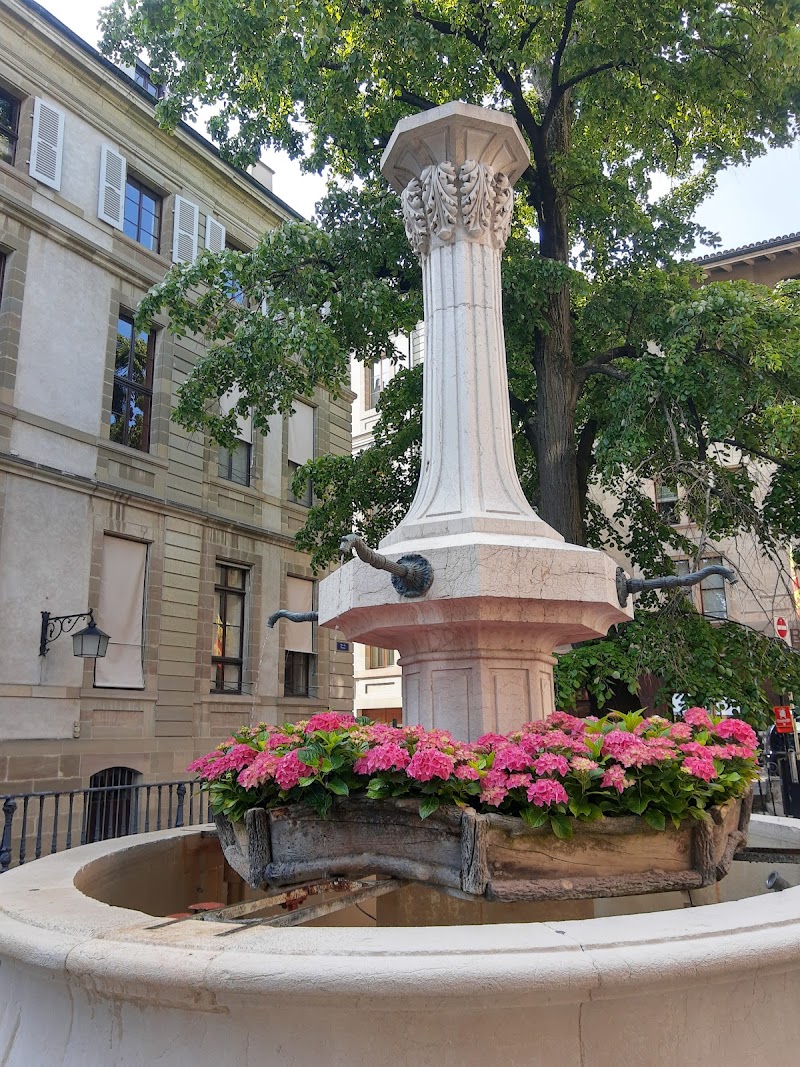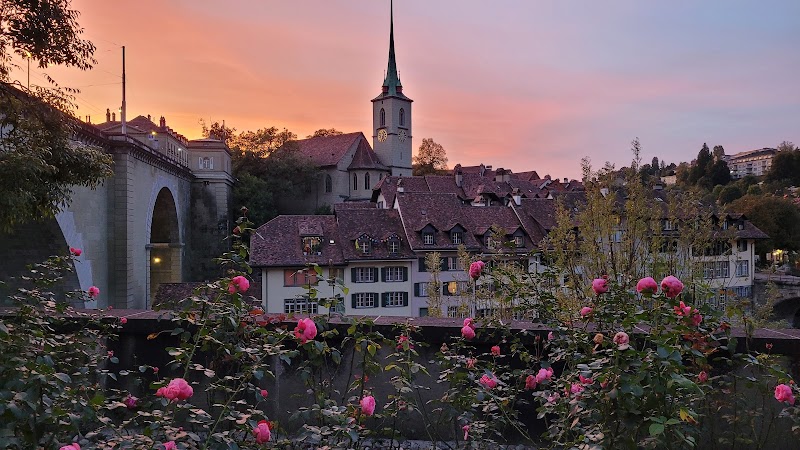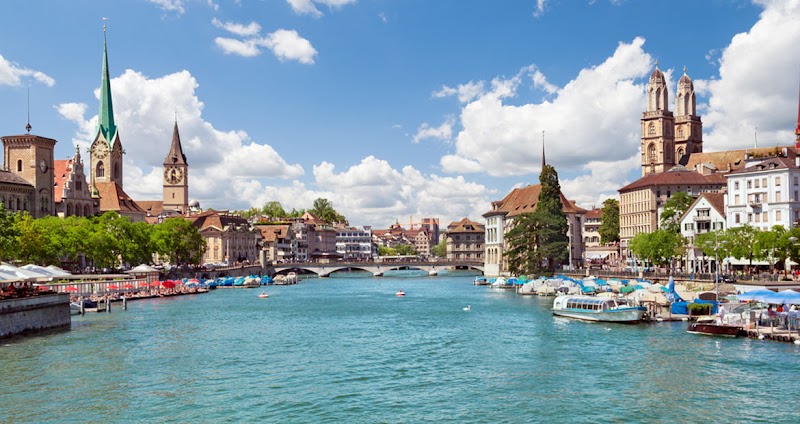Discover the Magic of Switzerland
Switzerland, a land of majestic Alps, tranquil lakes, vibrant cities, and a rich cultural scene, awaits to dazzle you. This captivating destination hosts over 450 museums and breathtaking landscapes featuring the breathtaking Swiss Alps, serene Lake Geneva, and the dynamic cities of Zurich and Geneva. The enchanting diversity of Switzerland is sure to offer an unforgettable journey.
As you embark on this memorable journey, your "tourist map of Switzerland" will become your trusted companion, guiding you through the Swiss mosaic of experiences. This map will reveal hidden gems, ensure you don't miss iconic sights, and help you personalize your journey to your unique preferences. It's not just a tool, but a key to discovering the heart and soul of Switzerland.
What to see and do in Switzerland
Switzerland is a treasure trove of natural beauty and rich culture, extending far beyond the well-trodden paths of Zurich and Geneva. From the awe-inspiring vistas of the Jura Mountains to the unique cobbled streets of Bern, a world of distinctive experiences await the adventurous traveler. If you're planning to explore more of Europe, check out our tourist map of Austria and tourist map of France for more exciting destinations.
Marvels of the Jura Mountains
The Jura Mountains, a hidden gem of Switzerland, offer a haven for outdoor enthusiasts. Whether you're standing atop the crests, overlooking verdant valleys and sparkling lakes, or traversing its trails on skis, mountain biking or horseback riding, the Jura Mountains promises an exhilarating experience.
Creux du Van Natural Reserve
While exploring the Jura, make sure to visit the awe-inspiring Creux du Van Natural Reserve. This natural rocky amphitheater, carved by ancient glaciers, is a testament to the power of nature. And if you're lucky, you might even spot a herd of ibex scaling the steep cliffs, a sight that will surely complete your Bavarian Alps tourist experience.
Discover the Charm of Bern
Switzerland's capital, Bern, is a bucket list venue that often remains under the radar. It's a UNESCO World Heritage Site that enchants visitors with its medieval architecture, terracotta rooftops, and one of the longest covered shopping promenades in Europe. Stroll down its cobbled streets, and you'll feel as though you've stepped back in time.
The Bear Park
When in Bern, don't miss visiting the Bear Park, home to the city's symbol and namesake. There, you can observe these majestic creatures in a spacious, natural environment, and learn about their significance to Bern's history and culture. It's a unique experience that seamlessly blends nature and city life.
Immerse Yourself in Swiss Culture in Appenzell
For a taste of traditional Swiss culture, head to Appenzell. This picturesque town is steeped in Swiss traditions, from its colourful painted houses to its folk music and dance. You'll feel the heartbeat of Swiss culture as you explore the town's narrow lanes, packed with artisan shops selling traditional crafts, and the smell of fresh Appenzeller cheese wafting from local dairies.
Seealpsee
Round off your Appenzell experience with a hike to Seealpsee, a serene mountain lake nestled in the Alpstein range. This crystal-clear body of water, surrounded by lush meadows and jagged peaks, offers a tranquil retreat from the hustle and bustle of everyday life. It's a fitting end to your Swiss adventure, encapsulating the country's inherent beauty and tranquility.

Booking.com
Practical Information for Visiting Switzerland
Transportation and Mobility
Switzerland takes pride in its efficient and punctual public transportation system. The Swiss Travel System offers an array of passes that allow unlimited travel on trains, buses, and boats around the country. Also, in cities like Zurich or Geneva, you can rely on an extensive network of trams, buses, and local trains. Bike rental schemes provide a fun and eco-friendly way to explore.
Schedules and Prices
When planning your journey, remember that Swiss trains and buses usually operate from early morning until midnight. It's advisable to check official schedules on the Swiss Federal Railways (SBB) website. Admission prices for attractions vary, with many museums offering free admission on particular days. Always check official websites for accurate and current pricing information.
Safety Tips
Switzerland is generally safe for tourists, but it's always wise to exercise basic safety precautions. Always keep your belongings secure, avoid carrying large amounts of cash, and stay alert to your surroundings. If planning to hike in the Swiss Alps or Jura Mountains, check weather conditions in advance and ensure you have the appropriate gear.
Practical Recommendations
The best time to visit Switzerland depends on your interests. If you're a winter sports enthusiast, plan your visit between December and March for the best snow conditions. For hiking and sightseeing, the months from June to September offer pleasant weather and longer daylight hours. Keep in mind to respect local customs and the environment. Switzerland is known for its clean cities and pristine natural landscapes, so do your part to keep it clean and unspoiled.

Frequently Asked Questions
1. What is the best way to appreciate Swiss chocolate and cheese?
Switzerland is synonymous with fine chocolate and cheese. Immerse yourself in the Swiss gastronomic culture by visiting a local chocolate factory or cheese dairy. These are often equipped with tastings and opportunities to purchase products directly from the source.
2. Any special precautions for winter sports in Switzerland?
Skiing and snowboarding are popular winter activities in Switzerland. Be well-prepared with proper gear, physical conditioning, and knowledge about potential risks. Always check weather forecasts, adhere to ski slope rules, and consider hiring a local guide.
3. How can I experience Switzerland’s watchmaking heritage?
Switzerland is celebrated worldwide for its precision watchmaking. Plan a visit to La Chaux-de-Fonds, recognized as a UNESCO World Heritage site for its unique urban planning related to the watchmaking industry. Many watch manufacturers also have museums open to the public, such as the Patek Philippe Museum in Geneva.
4. Can I use the Euro in Switzerland?
Switzerland is not part of the Eurozone, and the official currency is the Swiss Franc (CHF). While some places might accept Euros, it's advisable to carry Swiss Francs for the best exchange rate and convenience. ATMs are widely available, and credit cards are accepted almost everywhere.
5. Is Switzerland a good destination for solo travelers?
Absolutely! Switzerland is known for its safety, efficient public transportation, and the hospitable nature of its residents. Whether exploring bustling cities, charming towns, or the majestic Alps, you'll find Switzerland a welcoming and easy-to-navigate destination for solo travel.
6. Are there any specific rules I need to be aware of when hiking in Switzerland?
Switzerland has a well-developed network of hiking trails. Stick to marked paths, respect the flora and fauna, and don't leave any trash behind. Note that in some Alpine areas, you may encounter livestock. In those cases, keep your distance, don't feed the animals, and if you have a dog, keep it on a leash.

